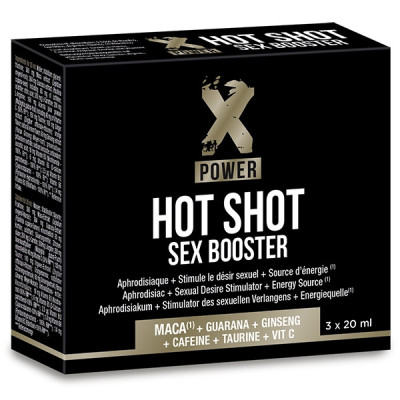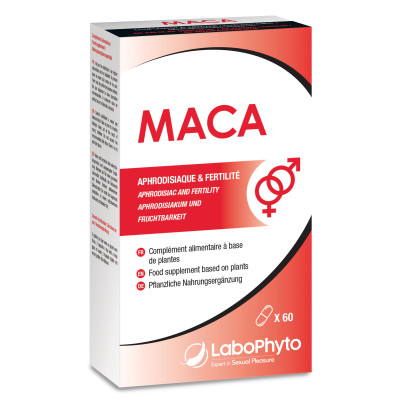
Complete guide to MACA
Reading time: 15 minutes
Maca is a Peruvian plant grown in the Andes mountains. It is a cruciferous vegetable, meaning it is related to broccoli, cabbage, and kale. Maca is a common ingredient in Peruvian cuisine that gives dishes an earthy flavor. Maca root can be powdered and added to meals or smoothies.
Apart from its culinary uses, maca may also have several health benefits.
What is MACA?

The maca plant, scientifically known as Lepidium meyenii, is sometimes called Peruvian ginseng.
Maca is a cruciferous vegetable related to broccoli, cauliflower, cabbage and kale.
Maca originates from the highlands of the Peruvian Andes mountain range.
In fact, Andean peoples have been cultivating maca for over 2,000 years. It is one of the few edible plants that can survive harsh weather conditions above 4,000 meters (13,123 feet) in the Peruvian Andes.
Traditionally, the Andean people used maca as food, consuming it in a fermented drink or porridge. Additionally, the Andean people used maca as a natural medicine to treat various health conditions, like respiratory problems and rheumatic diseases (1Trusted Source).
Demand for maca products has increased in recent years, likely due to claims that the plant can promote libido and fertility.
Due to the increase in global demand for maca, people have started mass-producing this plant in other parts of the world, including the mountainous province of Yunnan in China (1Trusted Source).
Maca root, the most used part of the plant, contains fiber, amino acids, vitamins and minerals.
It also contains other bioactive compounds, including macamides, macaridine, alkaloids, and glucosinolates, which are thought to be responsible for maca's medicinal benefits (2Trusted Source).
Even though people claim that maca supports health in many ways, research is currently limited and the results of studies on its effects have been mixed. More research is needed to determine the effectiveness of maca.
What are the benefits of MACA?
Improves libido
The best known benefit of maca root is its aphrodisiac ability to increase libido in both men and women. There is scientific evidence to support this claim.
For example, an older study from 2002 found that men who took 1.5 or 3 grams (g) of maca per day had increased libido compared to those who received a placebo.
A review of studies on maca and sexual functioning found some evidence to suggest that maca may improve libido, but the authors cautioned that more research is needed.
A study also found that maca root may help reduce sexual dysfunction in postmenopausal women who were taking an antidepressant.
Reduces erectile dysfunction
Maca root may also have benefits for people with erectile dysfunction. A small 2009 study looked at the effect of consuming 2.4g of maca root daily for 12 weeks on participants' perceptions of their general and sexual well-being.
The study participants were men with mild erectile dysfunction. Those who took maca root experienced a more significant increase in sexual well-being than those who took a placebo.
Boosts energy and stamina
Some athletes and bodybuilders use maca root as a supplement to increase energy and performance. There is supporting evidence.
A 2009 pilot study found that using a maca extract for 14 days improved the performance of male cyclists in a 40 kilometer time trial. However, the results were not significantly different from the improvement seen in those taking a placebo.
However, the same study found that maca extract improved libido in participants who used it. However, the sample size of this study was very small, so more research is needed to confirm the results.
Increases fertility
Another popular use for maca root is to increase fertility, especially in men.
A trusted review found some evidence that maca root may increase sperm quality in both fertile and infertile men. However, further research is needed.
Improves mood
Maca contains flavonoids, which are believed to improve mood and reduce anxiety. A study in 14 postmenopausal women found that maca could reduce feelings of anxiety and depression.
Similarly, one study found that maca may reduce symptoms of depression in postmenopausal Chinese women.
Reduces blood pressure
It is possible that maca root may also help improve blood pressure. The same study also found that 3.3g of maca daily for 12 weeks reduced blood pressure in postmenopausal Chinese women.
Reduces sun damage
An older study in an animal model found that maca may help protect the skin from UV rays. Another animal study found that maca leaf extracts may help prevent sunburn cells from forming.
Fights free radicals
Maca root also promotes natural antioxidants in the body, such as glutathione and superoxide dismutase.
Antioxidants help fight free radicals, which can damage cells in the body. Some people think that antioxidants can help prevent certain health problems, including heart disease and cancer.
Reduces symptoms of menopause
Some proponents of maca root believe it can help balance levels of the hormone estrogen. During perimenopause, the stage before menopause, estrogen levels fluctuate and cause various symptoms.
One study found that postmenopausal women who took two daily tablets containing maca had reduced symptoms, such as hot flashes and night sweats.
Improves learning and memory
Some data suggests that maca can improve learning and memory. For example, a 2011 study found that maca could improve memory in mice.
A 2014 literature review suggested that maca may have benefits for learning and memory performance. Researchers have suggested it could be useful for treating conditions that affect these processes, such as Alzheimer's disease.
However, only research in animal models is currently available, so it is unclear whether maca will have the same benefits in humans.
How to use MACA?
You can use it in treatment to increase fertility and sexual vigor, reduce symptoms of menopause, stimulate the immune system, tone the body, relieve stress. Even today, Peruvians in the highlands consume an average of 500 g of Maca per day. The dosages recommended by some manufacturers (from 500 mg to 1 g, 3 times a day) are much lower than their traditional Maca consumption. For Maca products, it would seem that the 1.5g dose is as effective as the 3g dose.



%201.png)
%201.png)






